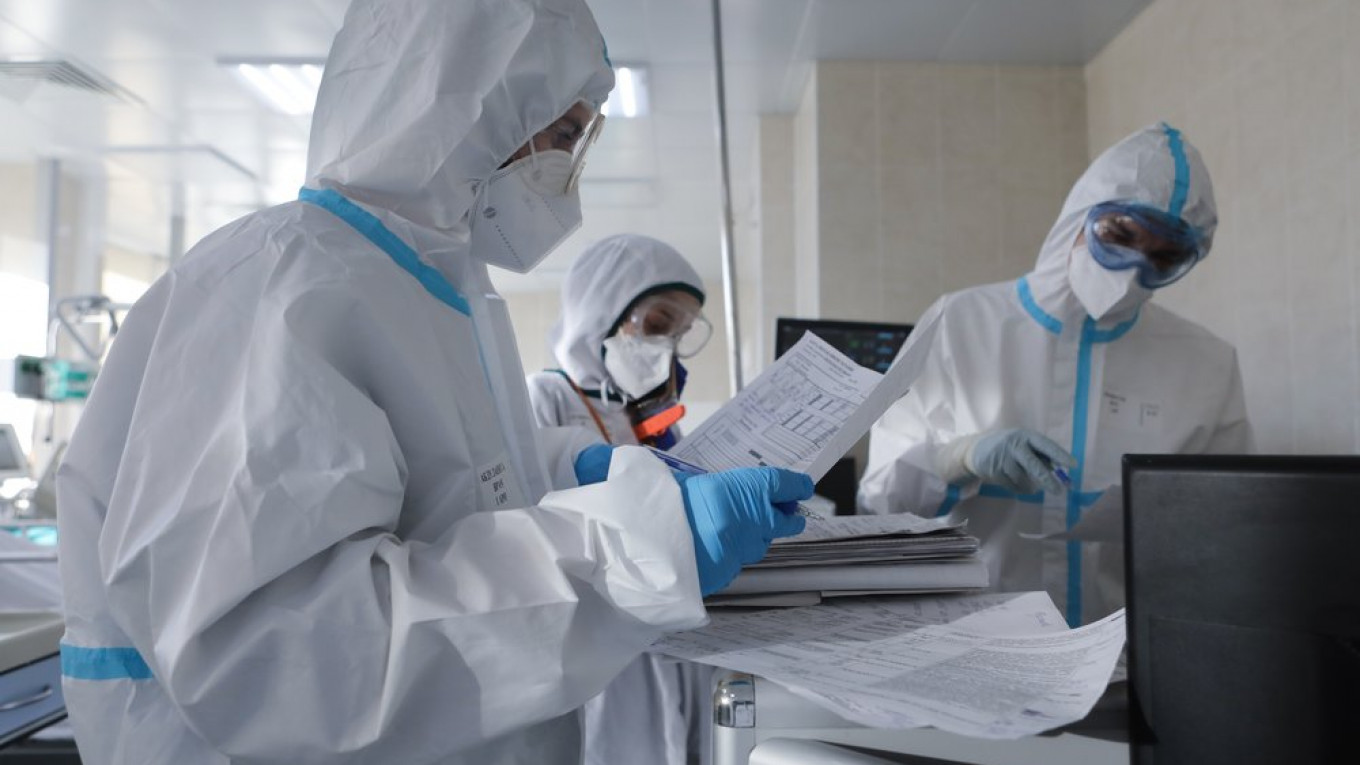Medical students on the front lines of Russia’s coronavirus response will receive $260 in payouts before the end of the year, news agencies quoted a senior cabinet official overseeing Russia’s virus response as saying Friday.
Deputy Prime Minister Tatiana Golikova said 60,296 students “not in full-time positions but in practical training at medical organizations” will receive 10,000 rubles ($130) in November and another payment of the same amount in December.
Another 5,382 vocational school students will receive 7,000 rubles ($91) for each of the two months, the state-run RIA Novosti news agency quoted Golikova as saying.
“The authorized federal authorities will hand out these payments in late November-December 2020,” she said during a videoconference with regional governors.
Golikova urged the governors to issue payments of the same amounts to non-federal students involved in their regions’ Covid-19 response efforts.
“The needed financial resources are available,” she was quoted as saying. “We have transferred 10 billion rubles [$131.5 million] to you, which you can spend on any coronavirus-related activities.”
The second wave of Russia’s coronavirus outbreak this fall has shifted from Moscow to Russia's regions, which generally have poorly funded healthcare systems.
At the start of the Covid-19 outbreak in spring, Russian medical students reported being forcefully marched to the front lines at overwhelmed coronavirus hospitals for “practical training.”
Moscow’s Health Department had said in April that student medical workers would earn around $1,500 per month and be able to choose from a “variety of jobs.”
Students said they were skeptical of being paid that much, considering that the average monthly salary for a nurse in Moscow ranges below $1,000.
A Message from The Moscow Times:
Dear readers,
We are facing unprecedented challenges. Russia's Prosecutor General's Office has designated The Moscow Times as an "undesirable" organization, criminalizing our work and putting our staff at risk of prosecution. This follows our earlier unjust labeling as a "foreign agent."
These actions are direct attempts to silence independent journalism in Russia. The authorities claim our work "discredits the decisions of the Russian leadership." We see things differently: we strive to provide accurate, unbiased reporting on Russia.
We, the journalists of The Moscow Times, refuse to be silenced. But to continue our work, we need your help.
Your support, no matter how small, makes a world of difference. If you can, please support us monthly starting from just $2. It's quick to set up, and every contribution makes a significant impact.
By supporting The Moscow Times, you're defending open, independent journalism in the face of repression. Thank you for standing with us.
Remind me later.






